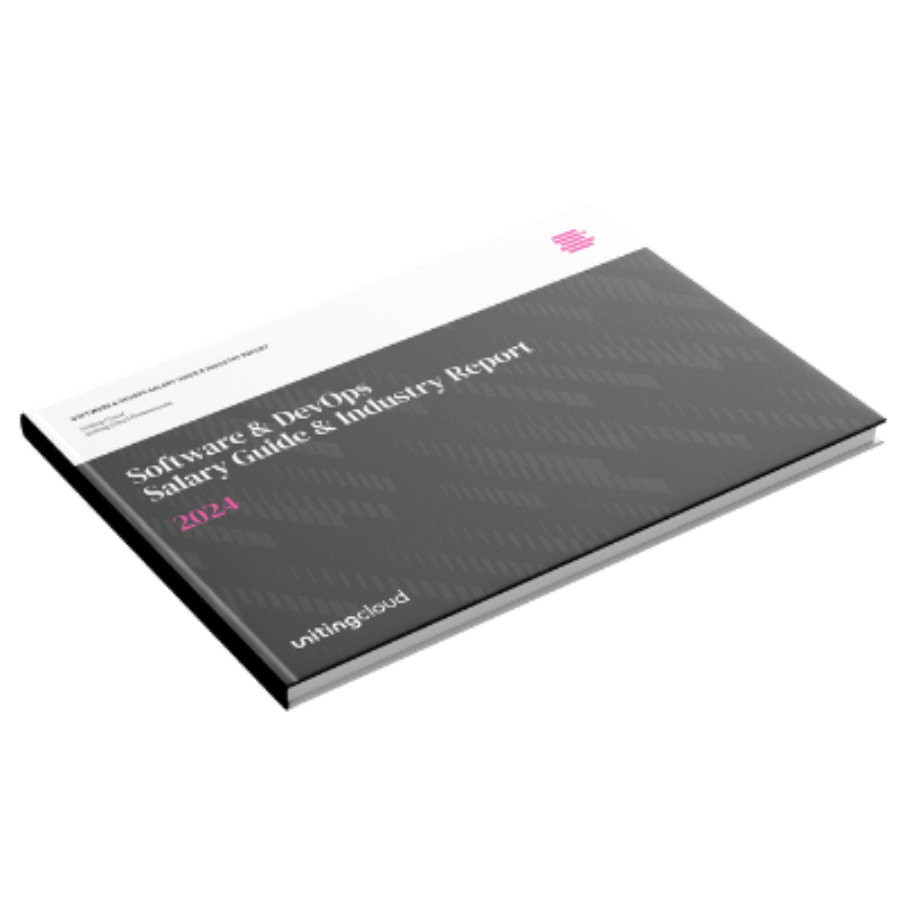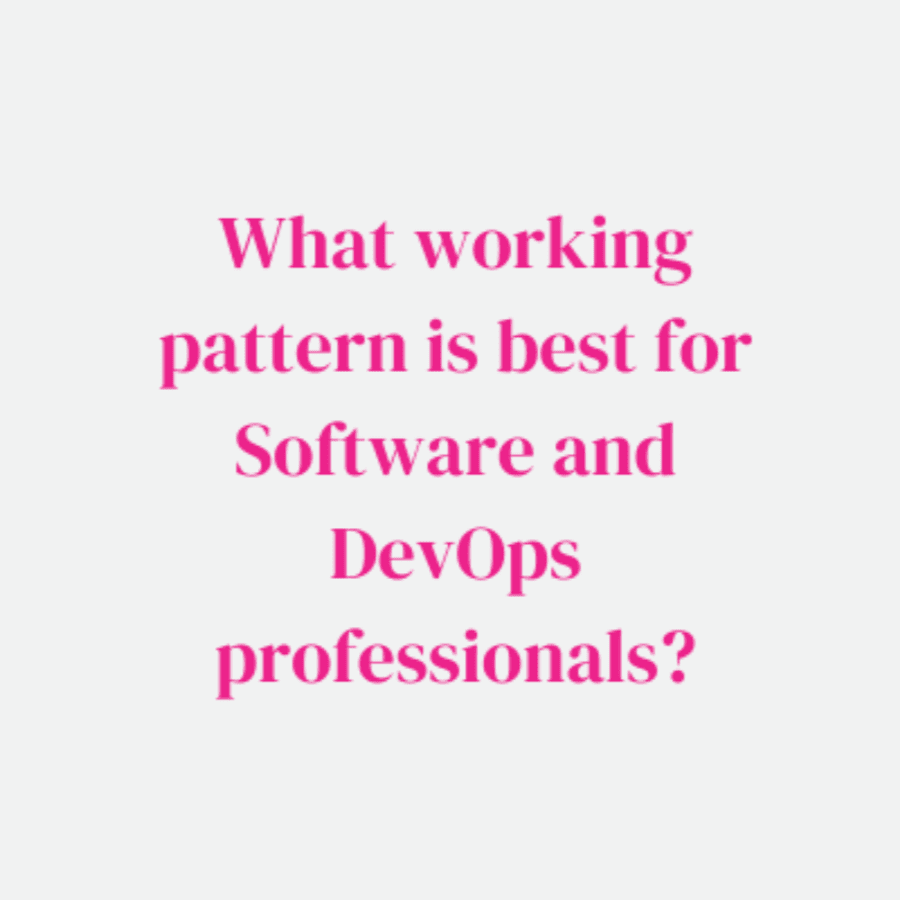Benchmark Your Salary
Each year Uniting Cloud release a salary guide with the aim of bringing transparency to the Software and DevOps community.

What's Inside?
Salary data provided by over 400 professionals working in the UK Software and DevOps market, analysed against language experience, cloud types used, and year's of experience.
Remote working, Hybrid and In the Office analysis uncovering which working pattern is most attractive to professionals
Career Progression and Learning and Development insights.
Benefits data, including equity, time off, health insurance, maternity/paternity leave and more.
2024's Hiring Market
4A shallow talent pool and a competitive hiring market makes attracting Software Engineers and DevOps Professionals to your team quite the challenge.
Yet as businesses across all sectors increasingly rely on digital solutions, these professionals play an increasingly vital role.
The knock-on effect? There’s a boosted demand for professionals with specialist DevOps and Software expertise; people with a niche set of skills - and who are at the centre of our research.
We asked 400 DevOps and Software Engineering specialists to complete our survey. We then added data from our proprietary research tools and our data base and are pleased to have created a detailed overview revealing the inside info.
Our Salary Guide aims to share the insights behind what makes professionals in our industry tick, the salary benchmarks that make for an attractive role and the value propositions that specialists look for in their next role. Utilising this data should steer your hiring initiatives in the right direction, giving you the edge in the competitive battle for talent.

Methodology
The purpose of this methodology is to provide a clear understanding of the approach utilised in conducting a survey aimed at Software Engineering and DevOps professionals. This survey aimed to gather insights into various aspects of the industry, including salary data (base and total package), working environments, trends, challenges, and best practices.
Survey Design:
Objective: The primary objective of the survey was to understand the perspectives and experiences of Software and DevOps professionals as well as gather data that could provide industry wide benchmarks.
Questionnaire Development: A comprehensive questionnaire was designed to cover key areas surrounding salary, industry trends for 2024, important benefits, learning and development programs.
Pilot Testing: Prior to the official launch, the questionnaire underwent pilot testing to ensure clarity, relevance, and effectiveness in eliciting the desired information.
Question Types: The questionnaire included a mix of multiple-choice questions, Likert scale items, and open-ended questions to capture a broad spectrum of responses.
Sampling Method:
Target Population: The target population comprised professionals actively involved in a job in Software Engineering or DevOps across various industries in the UK.
Sampling Technique: A combination of convenience sampling and purposive sampling techniques was employed to reach out to a diverse pool professionals.
Sample Size: The survey aimed to collect responses from over 400 professionals to ensure adequate representation and statistical reliability.
Data Collection:
Online Survey Platform: The survey was administered using a reputable online survey platform, ensuring ease of access and data security.
Distribution Channels: The survey link was distributed via professional networks, industry forums, and targeted email invitations to reach the intended audience.
Data Collection Period: The survey was conducted over a 1 month in January and February 2024 to allow sufficient time for respondents to participate and provide thoughtful responses.
Data Analysis:
Quantitative Analysis: Responses to multiple-choice and Likert scale questions were subjected to quantitative analysis using statistical tools to identify trends, patterns, and correlations.
Qualitative Analysis: Open-ended responses were analyzed thematically to extract insights, opinions, and anecdotes shared by respondents.
Ethical Considerations:
Informed Consent: Participants were provided with clear information about the purpose of the survey and their voluntary participation. Consent was obtained before proceeding with the survey.
Anonymity and Confidentiality: Respondents were assured of the confidentiality of their responses, and measures were implemented to anonymize data to protect the privacy of participants.
Limitations:
While efforts were made to ensure the representativeness of the sample, the findings may be subject to biases inherent in survey research, such as self-selection bias.
The generalizability of findings may be limited to the population of Software and DevOps professionals who participated in the survey.
Conclusion:
The methodology employed in this survey aimed to uphold standards of rigor and validity in data collection and analysis, thereby providing meaningful insights into the perspectives and practices of professionals.
This methodology outlines the systematic approach adopted in conducting the survey, ensuring reliability and credibility in the generation of findings and conclusions.
With the Software & DevOps industry evolving after a challenging year, we thought it was important to reach out to our community to build the 2024 Software Engineering & DevOps Industry Report specifically designed for professionals working in the UK.



